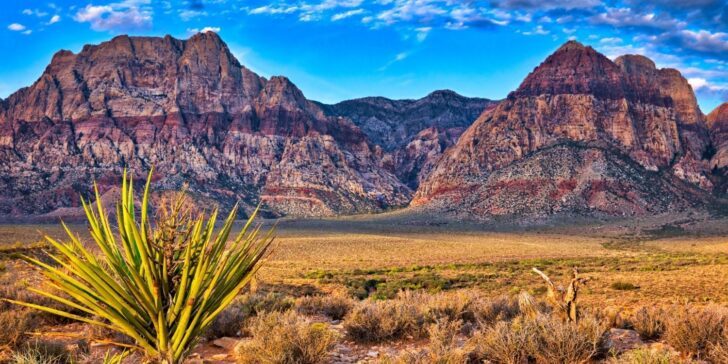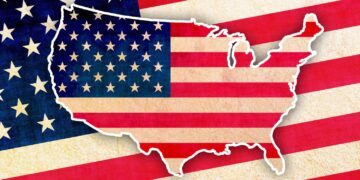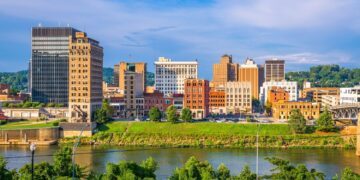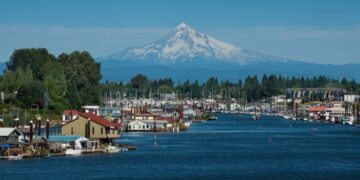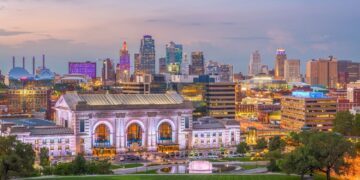Officially nicknamed “The Silver State” but also known as “The Sagebrush State” and “The Battle Born State,” Nevada was the 36th state to join the United States of America on October 31, 1864.
It has a population of 3,080,156 people (as of 2019), making it the 32nd most populous state.
Nevada is bordered by the states of Utah, Oregon, Idaho, California, and Arizona.
With a total of 110,577 square miles (286,382 square kilometers) of land and water, it is the seventh-largest state.
The capital of Nevada is Carson City, which is situated to the west of the state, just south of Reno.
That’s enough fast facts about the Silver State for now; we’re here to learn some of the more interesting facts!
People have lived in Nevada for around 10,000 years.
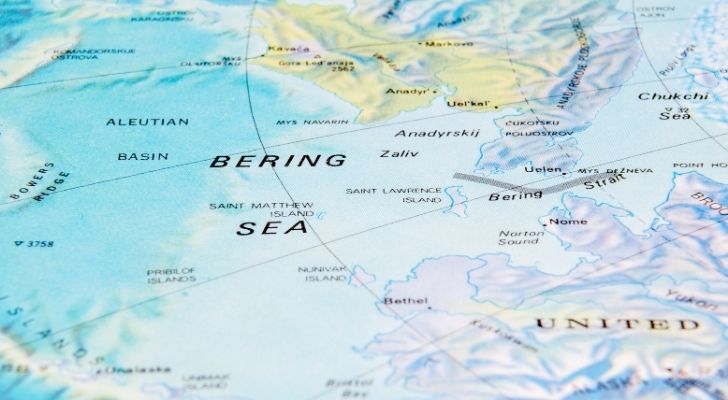
According to the most modern theories on how the Americas were populated, a group of people called the Paleo-Indians crossed from the far east of modern-day Russia.
The point of entry was to the most westerly point of modern-day Alaska, sometime around 14,000 BC, via the Bering Strait.
It was these people who spread across the Americas and developed into the many tribes, kingdoms, nations, and cultures that were present when Europeans first arrived.
The earliest archaeological evidence of human settlement in what later came to be known as Nevada comes from a burial site near Fallon, Nevada, and dates back to 9,400 years ago.
The first Europeans to set foot in Nevada were Spanish.
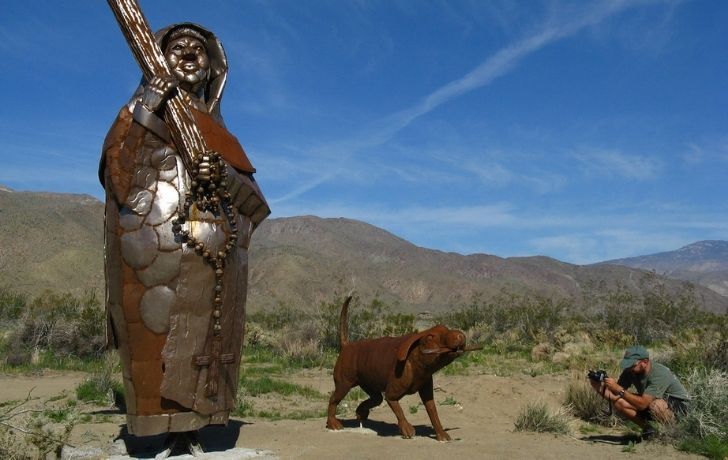
As the eastern shores of North America were being colonized by the British, the southwest shores were being colonized by the Spanish.
When the Spanish Empire expanded New Spain, they sent missionaries further and further north.
So it was then that Francisco Garcés, a Franciscan Missionary, became the first white man to set foot in the region now known as Nevada at some point in the 1770s.
Shortly after Garcés’s expedition, New Spain annexed the region, later establishing it as a part of its Alta California province in 1804.
Many Native American tribes lived peacefully in Nevada when Europeans arrived.
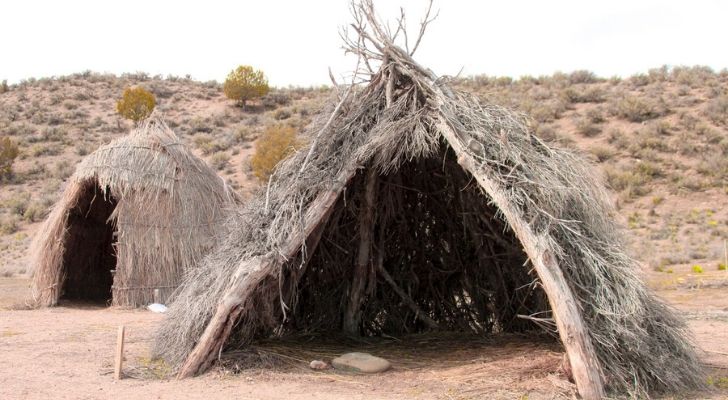
As previously mentioned, archaeological evidence shows that modern-day Nevada has been inhabited for around 10,000 years or more.
While we know very little about these first people who lived in Nevada, we do know about the Native American Tribes who lived in the region before the European invasion.
Along the shores of Lake Tahoe lived the Washoe people. They shared their borders with the Northern Paiute people, who also lived in the west of the Great Basin.
To the east of them lived the Western Shoshone, with the Southern Paiute living further to the southeast.
In the far southern corner of modern-day Nevada, along the banks of the Colorado River, lived the Mohave people.
When Europeans first arrived in the region, they believed the various tribes to be lost, wandering aimlessly through the desert.
However, the native tribes had a deep understanding of the local area and lived nomadic lives.
They moved to different parts of their territories seasonally to take full advantage of the available natural resources.
Nevada was once a Mexican Territory.
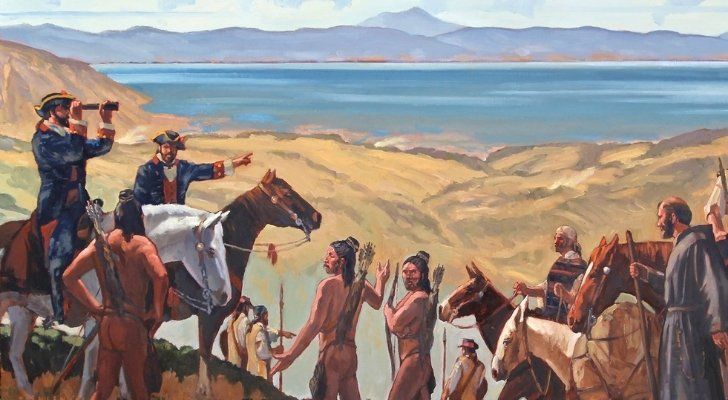
As previously mentioned, the region, including modern-day Nevada, was declared a province of New Spain called Alta California in 1804.
Shortly after this, in 1808, the Mexican War of Independence broke out, with Mexico gaining its independence from Spain in 1821.
As the population of Alta California was so low in numbers, it became a territory of Mexico instead of becoming a state.
Mexico held control of the region until 1848, despite numerous attempts by Alta California to gain its independence.
In 1848 Mexico relinquished control of Alta California after losing to the USA in the Mexican-American War, after which it remained as an unorganized territory until 1850.
The first white people to live in Nevada were Americans.
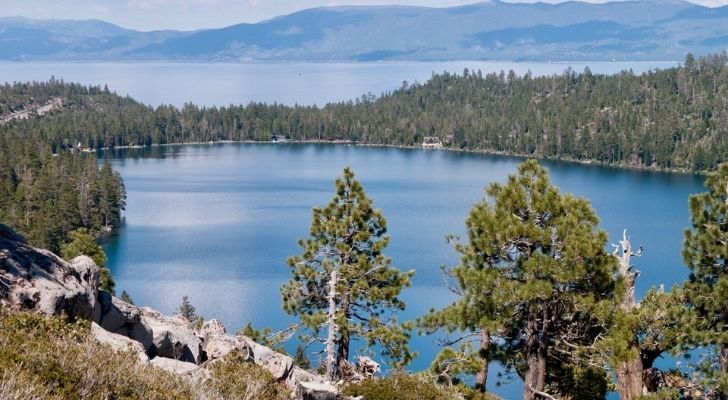
In the 27 years that Mexico held modern-day Nevada, they never put any effort into controlling it, and as such, it was largely untouched by Europeans.
At the time, the Nevada region was referred to by its white occupants as Washoe, after the Washoe people who lived by Lake Tahoe.
While a few of America’s more wild citizens lived in the mountains of Nevada, there were no serious moves to settle it until the early-mid 1800s when the California Gold Rush struck.
Most of these early settlers were Mormons who settled at various points along the wagon trails that led to the California goldfields.
Nevada was almost made a part of California.
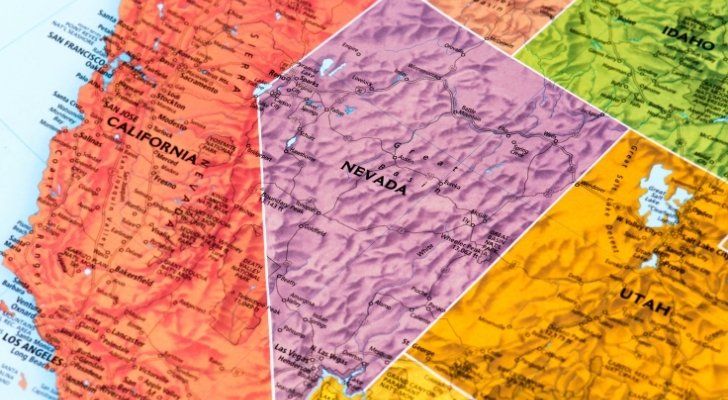
In Nevada’s early days, there was little to no governmental control, and as such, the settlers in the region had to essentially settle disputes between themselves.
As the population grew, this method became less effective, especially regarding disputes between Mormon and non-Mormon settlers.
Both sides petitioned the federal government to take action. Around this time, both California and Utah Territories were in the process of being founded.
The non-Mormon settlers wished for the region to become a part of the California Territory. The Mormon settlers hoped for it to become a part of Utah Territory, which at the time was governed mainly by Mormons.
Utah acted quickly, and the region became a part of Utah Territory from the day it was founded in 1850.
The region surrounding Las Vegas was previously a part of Arizona.
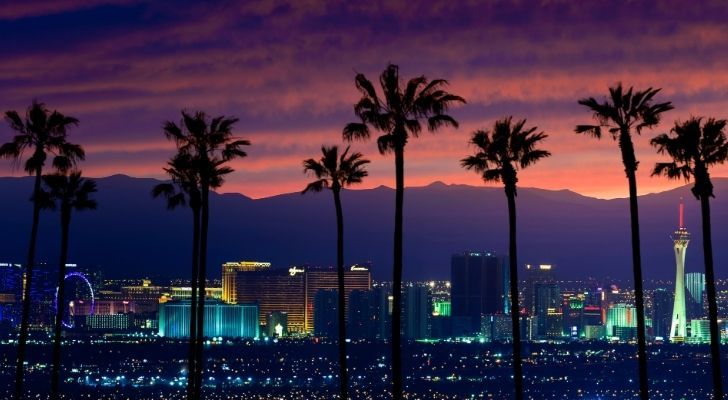
When one thinks of Nevada, they generally tend to think of Las Vegas, the casinos, the glitz, and the glamour.
It turns out that Las Vegas might never have existed at all, at least not as we know it.
When Nevada separated from western Utah and attained statehood on October 31, 1864, it was smaller in size than it is today.
In 1866 the state grew in size when another portion of western Utah was reallocated to Nevada.
In 1867 the state grew again, this time to the south, with the addition of a piece of land formerly known as Pah-Ute County, Arizona.
This patch of land was reallocated to Nevada as gold was discovered there. The federal government thought Nevada would be better equipped to use the newfound resource.
Just 38 years later, Las Vegas was founded in this newly acquired part of Nevada.
More Nuclear weapons have been tested in Nevada than anywhere else in the United States.
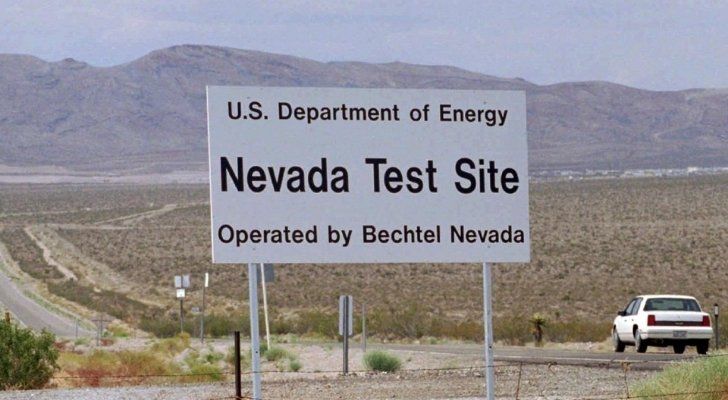
And that’s all just from one site, too.
We’re talking about the Nevada National Security Site (formerly known as the Nevada Test Site), located just 65 miles (105 km) northwest of Las Vegas.
The Nevada Test Site was created on January 11, 1951, solely for the purpose of testing various nuclear devices and continued to do so until September 23, 1992.
Over the course of the site’s 41 years of operation, 100 nuclear devices were tested above ground, while a further 828 were tested underground.
Unsurprisingly, the Nevada Test Site is one of the most irradiated areas in the US.
The federal government still owns more than 80% of Nevada.
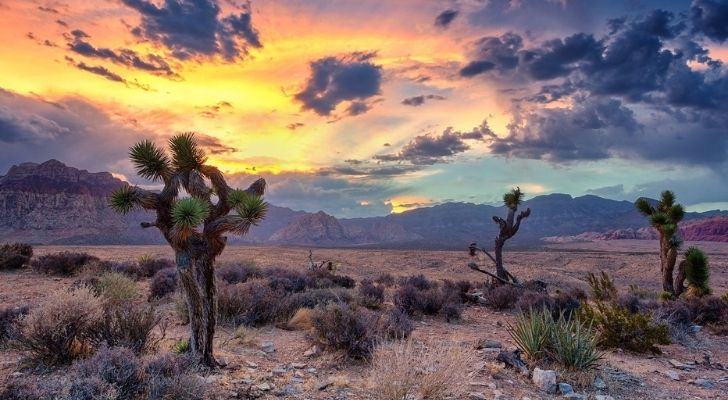
While the land in most US states is predominately owned by private landowners, the same can’t be said for dry, desert-like states such as Nevada.
This mostly comes down to how the US states were initially populated.
One of the ways in which the federal government convinced people to move to the new states was through the Homesteading Act, through which one could come to own parcels of federal land by developing it over the course of five years.
While this act achieved its goal in most US states, Nevada was simply too arid.
Despite many attempts, the allotted amount of land was too small to raise livestock and too dry to grow crops.
The resulting failure of the Homesteading Act in Nevada can be seen today, as the federal government still owns 87% of the state’s land.
The oldest mummified human remains in the US were found in Nevada.
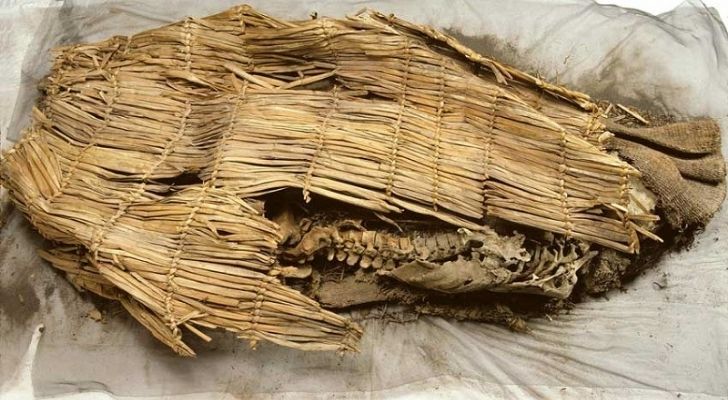
Referred to as the Spirit Cave Man, the mummy was discovered in 1940 by a pair of archaeologists just outside of Fallon, Nevada.
They discovered the mummy while exploring a site known as the Spirit Cave, where a large number of other artifacts were found.
The Spirit Cave Man was taken back to the Nevada State Museum, where it was initially dated to be under 2,000 years old and then moved into storage, where it remained for 54 years.
In 1996 the mummy was carbon-dated along with a number of other artifacts from the cave.
From this investigation, the Spirit Cave Man was found to be around 9,400 years old, making it the oldest mummy discovered in North America.
Over a third of Nevada’s state income comes just from gambling.
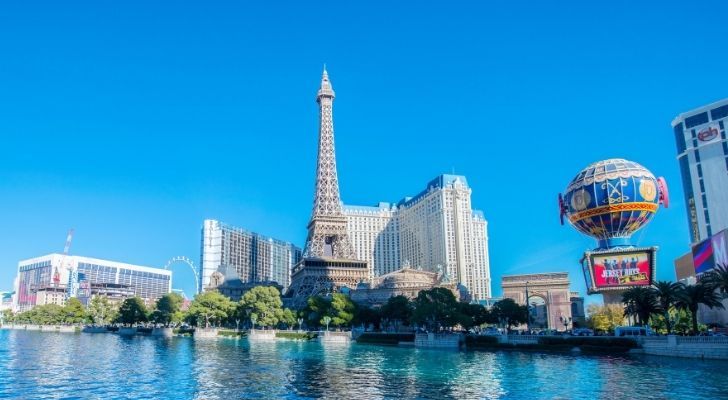
To clarify that, we’re talking specifically about the state’s revenue, as in the yearly income that the state government itself receives from sources such as taxes, fines, and so on.
In its early years, Nevada was truly the wild west, and while there were initially several laws that made gambling illegal, they weren’t really enforced until the late 19th century.
Even then, gambling was common until 1910, when anti-gambling laws were enforced nationwide.
It wasn’t until 1931 that gambling returned to Nevada, this time renamed as “gaming.” While it was meant to have been reintroduced temporarily, gambling in Nevada is here to stay.
Nevada is the driest state in the US.
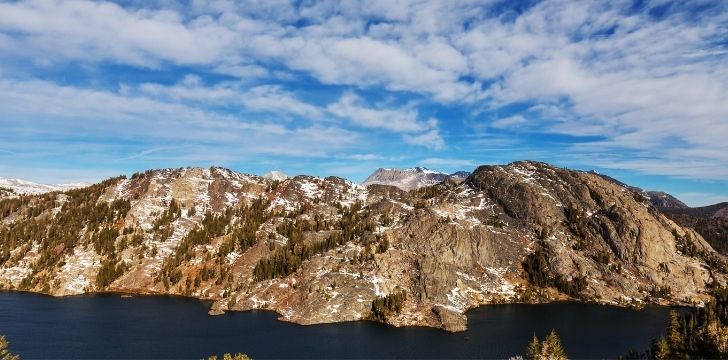
When most people think of Nevada, they think of a dry, hot place. And for the most part, they wouldn’t be wrong.
On average, Nevada gets just seven inches (18 cm) of rainfall each year, with the majority of that hitting the Sierra Nevada Mountain ranges in the state’s west.
More than 30 tons of shrimp are consumed every day in Las Vegas!

That’s more shrimp per day than everywhere else in the US combined.
It’s one of those numbers simply so large that we need to break it down to understand it. Thirty tons (27 tonnes) of shrimp is 60,000 lbs (27,215 kg), or about an entire 18 wheeler semi-trailer full of shrimp.
About 40 medium-sized shrimp weigh just one pound (0.45 kg), which means that, on average, 2.5 million shrimp are eaten every day in Vegas.
There are five main distributors of shrimp in Las Vegas, with one of them sending a mind-blowing ten tons (9.07 tonnes) of shrimp just to Caesar’s properties alone.
More gold is mined in Nevada than anywhere else in the US.
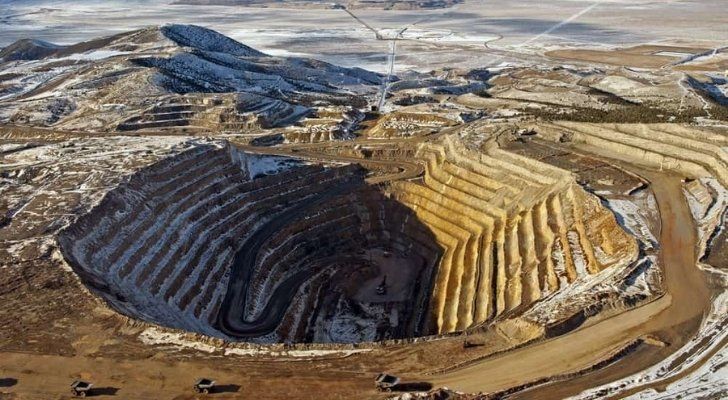
That’s right, Nevada actually produces more gold than the Golden State, California.
The first major mining boom to happen in Nevada came after the Comstock Lode, the largest known deposit of silver in the US, was discovered in 1859.
While silver made Nevada famous, the state actually produces more gold, with the largest gold discovery only happening recently in 1961.
The ever-mysterious Area 51 is located in Nevada’s desert.
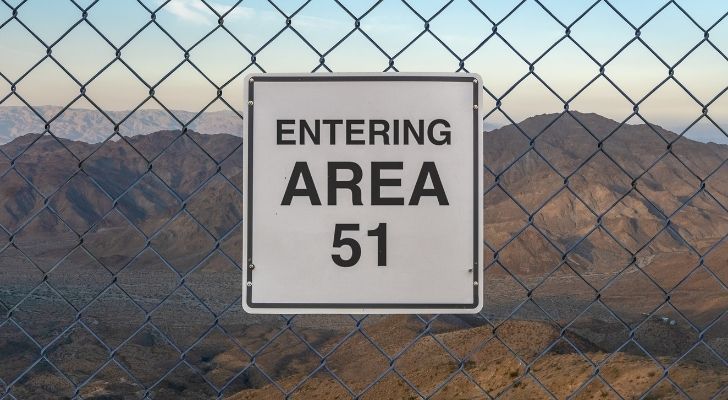
Officially called the Nevada Test and Training Range, Area 51 was first used by the US Central Intelligence Agency (CIA) in 1955 after the site was deemed an appropriate location to train pilots to fly top-secret planes.
The site was under the command of the CIA until 1978, from which point the US Air Force took over.
It wasn’t until 1989 that the general public gained interest in the secretive site. During this year, a local Las Vegas reporter interviewed a supposed staff member from Area 51 that claimed physicists were investigating a crashed alien spacecraft at the site.
From this point onward, Area 51 has been the subject of thousands upon thousands of conspiracy theories, with most of them relating to aliens.
The US government only admitted in 2013 that the site was a secret military site, claiming that the secrecy was necessary to prevent information from reaching the Soviets during the Cold War.
When white people first came to Nevada, all they saw was a desert, and they were confused when they saw Native Americans wandering around.
Now we know the state to be so much more than that, with tens of millions of visitors flocking to the state each year.
Sure, most of them end up going to Las Vegas, but Nevada is so much more than that!

